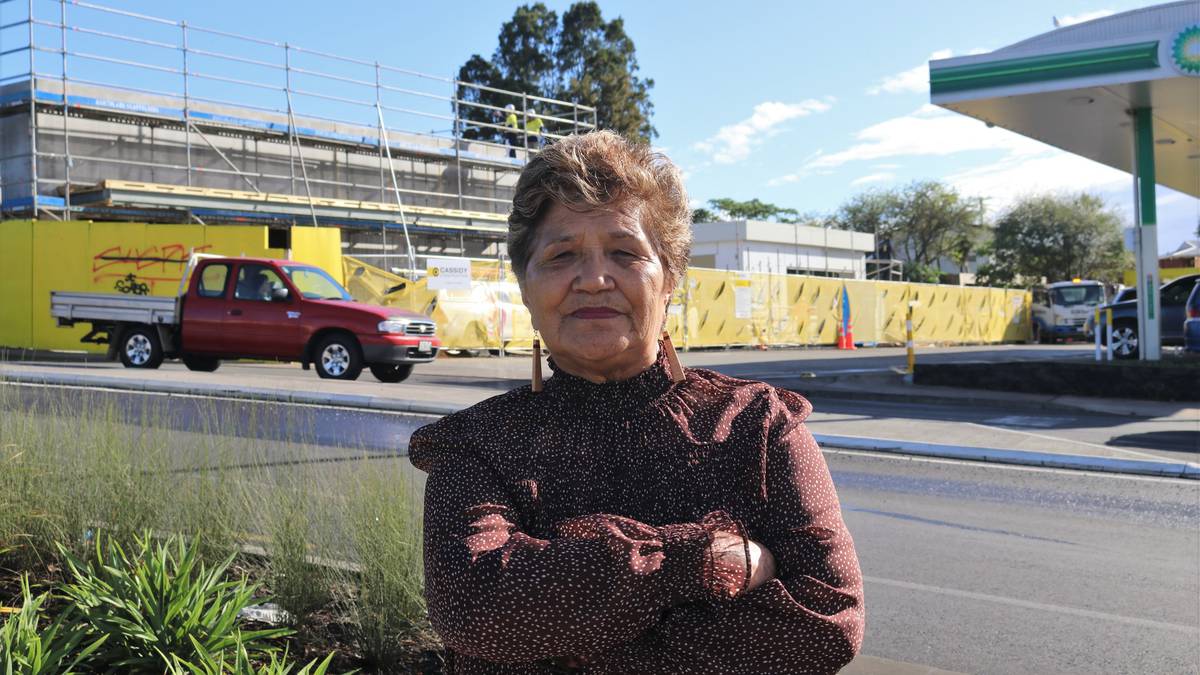Ngāti Rēhia trustee Nora Rameka was “absolutely angry” at both the proposal for another liquor outlet in Waipapa and the council’s failure to notify her hapū. Photo / Peter de Graaf
An application to open a liquor store on the same site as a Northland petrol station has been rejected after a flood of objections from locals, hapū, police and health experts.
Auckland-based Fresh Beer Ltd has proposed a new liquor outlet on a property shared with BP Waipapa at the corner of State Highway 10 and Waipapa Rd.
The business owner says he will target the higher end of the market rather than selling discounted alcohol, but objectors say it will encourage drink-driving and fuel liquor-related problems such as vandalism and litter.
Crucially, objectors say the plan violates section 36 of the Sale and Supply of Alcohol Act 2012 which prohibits the sale of liquor at, or at sites directly accessed from, service stations.
The store has already been built but the fit-out and hiring of staff is on hold.
Fresh Beer has 10 working days to appeal the decision.
Northland’s medical officer of health, police and 20 members of the public objected to the application for a 7am-10pm, seven-day-a-week off-licence.
The application was supported by a council licensing inspector but opposed by his boss, the district’s chief licensing inspector.
Hearings were held on September 8-9 with the District Licensing Committee releasing its decision to refuse the licence yesterday.
Witnesses who spoke at the hearings included alcohol and drug clinician Lloyd Case-Gilbert, who said the service station was a popular stop for people who lived north of Waipapa, and the proposal “comes dangerously close to promoting drink-driving”.
The store would be “a magnet for recovering alcoholics” and a mirror of the existing liquor outlet on the other side of the roundabout.
Health protection officer Jeff Garnham carried out a survey of the highway and surrounding roads, where he found a significant number of beer and RTD cans as well as some spirit bottles.
The only plausible conclusion was that people were drinking in cars then throwing the empties out the windows.
The store’s added convenience would “increase the likelihood of unplanned and impulse buying by hazardous drinkers” among the 7500 vehicles passing the roundabout each day.
Michelle Petricevich, who carries out alcohol screening in Whangārei Hospital’s emergency department, said it would be “irresponsible” to issue another liquor licence in Waipapa.
“Do not add a liquor store next to a gas station on a busy road. This is mixing our high road accident statistics with our high alcohol use.”
Other witnesses spoke of the high deprivation of communities north of Waipapa and children injured at the nearby BaySports complex by empties smashed on the playing fields.
/cloudfront-ap-southeast-2.images.arcpublishing.com/nzme/HUPER6FWXSCNXEFHOVTKZMZRSY.jpg)
Fresh Beer owner Hamish Firth told the committee he was “slightly surprised” by opposition to his application.
There had been no compliance problems or increase in alcohol harm, noise, litter or good order in the area around his two West Auckland stores.
He intended to focus on low-volume, high-margin products — “more New World than Pak’nSave” — and as an independent retailer he would not be required to offer the promotions, discounts and bulk-buying of franchise stores.
He expected many of his customers would come from outside the district, including tourists who could stop to fill up with petrol then “move across the forecourt to our place where we can sell them high-value products”.
Asked about section 36, Firth said he did not believe the store would be within a service station. If necessary the property could be subdivided.
Far North District Council licensing officer Emmanuel Platero said he considered there was no breach of section 36 because there was no straight line from the BP forecourt to the liquor store.
However, his boss, Patrick Barber, said he agreed with the objectors and believed the application should not have gone ahead once it failed section 36.
In her decision, committee chairwoman Kelly Stratford said a site visit confirmed direct access with just 25 paces between the petrol pumps and the proposed store.
She also highlighted Waipapa’s high density of existing liquor outlets — one for every 290 people, compared to a national average of one to 1000 — and police records showing 76 alcohol-related offences within a 1km radius of the site since January 1, 2021.
The applicant had also failed to engage with objectors and lacked a genuine understanding of the risks of alcohol harm in Waipapa and the wider area.
She concluded the application did not meet section 36 of the Act, and the already damaged amenity and good order of Waipapa would be damaged further, by a more than minor extent, if the licence was granted.
Ngāti Rēhia trustee Nora Rameka was among the first to speak out about the proposal.
She was concerned the store’s location would make alcohol even more accessible to vulnerable people, and the combination of petrol and alcohol sales on one site could hamper efforts to combat drink-driving.
Rameka said Māori were already over-represented in drug and alcohol statistics, drink-driving and jail, and many struggled to pay for petrol with current high prices.
“We know Waipapa is growing and there’s a future for all kinds of retail — but we don’t need another liquor outlet. Why would you do such a thing? Why would you want to keep breaking up families?”




